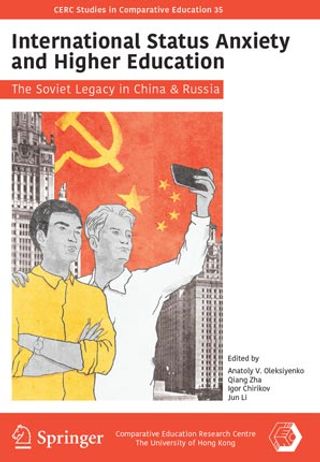?
International student recruitment in Russia: heavy-handed approach and soft power comeback
The chapter examines how the Russian federal government has been driving international student recruitment with attempts to force the modernization of higher education (HE) and promote soft power interests. We provide an overview of Soviet policies related to international student mobility, scrutinize the cyclic and multi-rational educational transformation that has been taking place since the 1990s, and reflect on the implications for the future. We explain the rationale of HE internationalization in contemporary Russia and show that the government’s reforms have focused on the political rationale inherited from Soviet times, combined with the heavy-handed modernization policy to fit in the context of global competition. This curious combination encourages higher education institutions to fixate on meeting government-led performance indicators, preserving the current structure of student mobility concentrated in a few institutions, and creating constraints for the development of academic excellence in Russian HE.
In book
